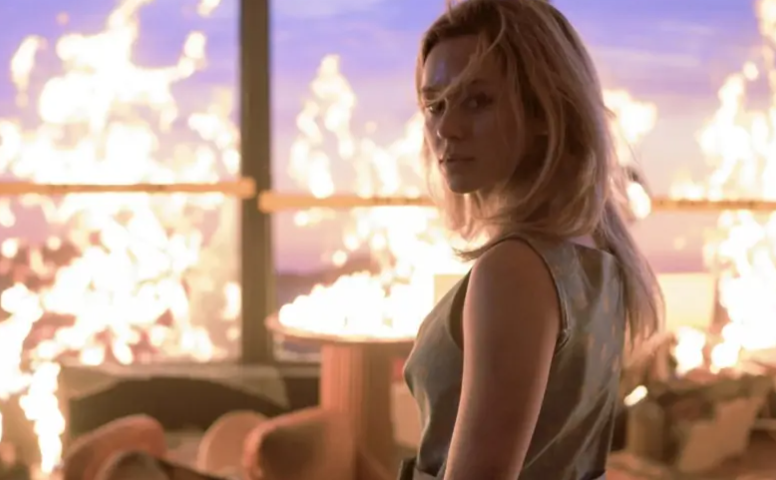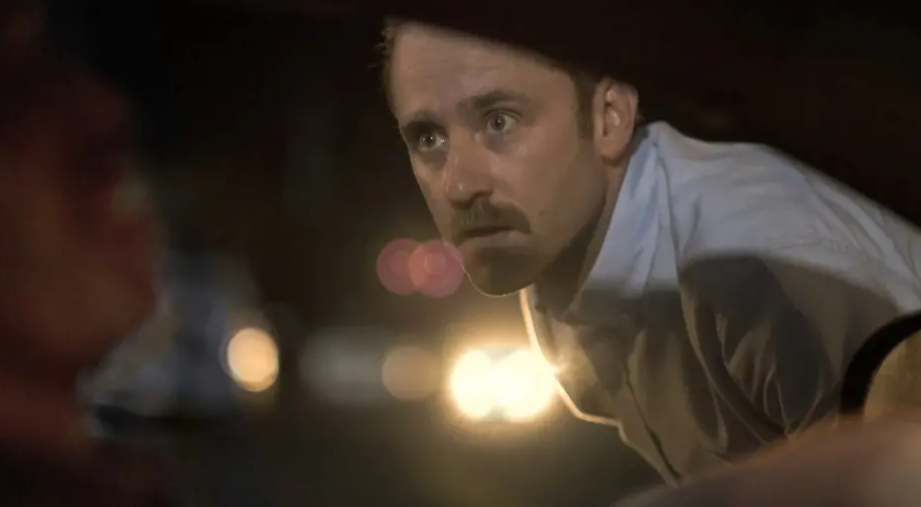Oftentimes when a massive franchise comes back from the dead after having been dormant for a decade or longer, it can feel like a pointless attempt of a cash grab. However, the same cannot be said of Zach Lipovsky and Adam Stein‘s Final Destination Bloodlines, which feels like a total rejuvination of the beloved, gory horror franchise. Not only is it an extremely thrilling and disgusting ride, but it’s one of the best movies in the long-running series, period.
Back For Blood:
What makes Final Destination so compelling as a horror franchise is not just the creativity of its death scenes, but its unique mythology—Death as a sentient, calculating force, reclaiming lives with cosmic precision. Bloodlines taps directly into this mythos and roots its terror in family legacy, expanding the series’ scope by weaving in multigenerational consequences stemming from one woman’s long-past defiance of fate.
Kaitlyn Santa Juana leads the film with a grounded, empathetic performance as Stefani Reyes, a college student tormented by visions she can’t understand. Her character’s arc echoes the desperate confusion of franchise predecessors like Clear Rivers or Wendy Christensen, but with the added complexity of family drama. Stefani’s search for the truth about her estranged grandmother, Iris Campbell, unfolds gradually, giving the film a more intimate emotional center than previous entries. As the revelations build, the classic dread of the series escalates—this time, however, the terror is tangled with bloodlines, inherited trauma, and unfinished business from a tragedy that never occurred.
A Terrifying Story:
The film’s chilling prologue is set in 1968 during the grand opening of the Skyview Restaurant Tower. The setting, retro and stylish, evokes a “Towering Inferno” vibe before shifting into the nightmarish premonition we’ve come to expect. The sequence is beautifully constructed and disturbingly elegant, using its period design to full effect before snapping us into the modern day. The narrative then jumps forward to present-day Stefani and her reconnection with a family that’s both familiar and fractured, allowing the script to deepen the emotional stakes.
From there, Bloodlines follows the familiar rhythm of the franchise—an inciting vision, a desperate warning, and the slow unraveling of Death’s wrath. However, this time the screenplay smartly shifts the premise: instead of survivors of an imminent catastrophe, we’re dealing with descendants of people who were never supposed to survive in the first place. This fresh angle injects urgency and existential weight into the story, redefining what “cheating Death” truly means.
Fantastic Direction and Set Pieces:
Lipovsky and Stein’s direction balances tension with emotional nuance. Rather than relying solely on the audience’s anticipation of violent set-pieces, the film builds suspense through its characters’ choices and interpersonal fractures. Stefani’s strained relationship with her mother Darlene (a formidable Rya Kihlstedt), and her tentative bond with her brother Charlie (Teo Briones), give the film a strong emotional core that makes every death hit harder—not just viscerally, but narratively.
As with any Final Destination entry, the real draw lies in the Rube Goldberg-esque sequences of doom, and Bloodlines delivers in full. Each set-piece is a masterclass in suspenseful design, starting with a subtle clue—be it a flickering light or a misplaced object—and building toward an outrageous, gut-churning payoff. A particularly memorable scene involving a lawn mower is executed with such mounting dread and chaotic precision that it ranks among the franchise’s best.
And yet, what sets Bloodlines apart is its sense of sorrow and inevitability. While earlier films relished their creative kills with a wink, Bloodlines is more somber in tone. Death here feels colder, more calculating. The deaths aren’t just ironic—they’re tragic, especially as we watch a family unravel under the crushing knowledge that they were never meant to exist. The moral dilemmas introduced—about sacrifice, survival, and even familial betrayal—lend the film a surprising amount of thematic heft.
Supporting Performances and Flaws:
Supporting performances are strong throughout. Richard Harmon is memorable as the smug and manipulative Erik, while Owen Patrick Joyner’s Bobby offers moments of innocent charm before things take a turn. Anna Lore and Brec Bassinger also make an impression, even in limited screen time. And of course, Tony Todd’s return as William Bludworth is a welcome one, lending a chilling gravitas to the film’s mythology. His brief yet pivotal appearance reframes the entire narrative with cryptic authority—his warnings never sounded more ominous.
Visually, the film is stylish and confident, with clean cinematography and clever editing that heightens the sense of cause-and-effect mayhem. Composer Tim Wynn’s score is both atmospheric and dramatic, reinforcing the suspense without overwhelming the quieter, emotional beats. The production design, particularly in the Skyview Tower and Iris’s cabin, adds texture to the film’s thematic layers—one a symbol of averted disaster, the other a fortress against fate.
If there’s a critique to be made, it’s that the film occasionally gets weighed down by exposition. While the mythology is richer here than in previous entries, the need to explain the lineage curse, the history of the tower, and the mechanics of Death’s design can slow the pacing in places. Some viewers might also find the final act’s twist a touch telegraphed, though it’s executed with sincerity and a grim inevitability that suits the franchise’s fatalistic spirit.
Overall:
Still, Final Destination: Bloodlines triumphs where it counts. It revitalizes the franchise without relying solely on nostalgia or gimmicks. Instead, it refines its core premise, raises the emotional stakes, and honors the legacy of the series with thoughtful storytelling and gloriously macabre set-pieces. For fans like me, it’s a deeply satisfying return to a world where Death always wins—but not without a fight.
This is the best kind of franchise sequel: one that respects what came before, expands the mythology in a meaningful way, and leaves you both dreading and craving what might come next.




